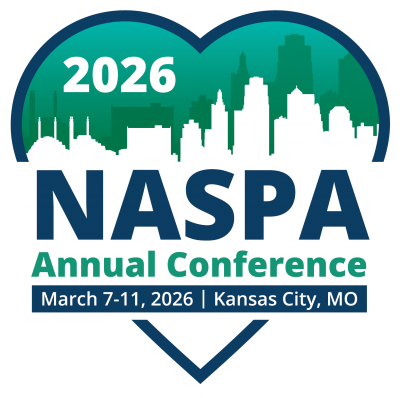Call for Reviewers
Become a Program Reviewer
Educational sessions for the NASPA Annual Conference are selected from an open call for proposals. Volunteer reviewers support the creation of the conference program by evaluating these proposals, providing feedback to the submitters, and making recommendations to the Conference Leadership Committee. A rigorous program review process is part of our promise to provide exceptional professional development that is reflective of the needs and knowledge of the field. Reviewers make this possible!
Please note that you may serve as a reviewer even if you have submitted a proposal; you will not be assigned to review your own program. You are also not required to attend the conference in order to review programs.
Pre-conference Workshop Review Timeline
Pre-conference Workshop proposals have an earlier submission deadline and review period than other program types. If you would like to review Pre-conference Workshops, mark your calendar with these dates:
- July 16, 11:59pm Pacific Time: Reviewer sign-ups close
- July 21-30: Review period
- July 30, 11:59pm Pacific Time: Reviews due
Main Program Review Timeline
Submissions for all other program types will be open through the summer, with reviews taking place in the fall. General program reviews will follow the timeline below:
- September 3, 11:59pm Pacific Time: Reviewer sign-ups close
- September 10-24: Review period
- September 24, 11:59pm Pacific Time: Reviews due
Program Review Process
Reviewers will be matched with programs based on their NASPA Reviewer Profile. At the start of the review period, you will receive an email with instructions for accessing your assignments. Reviews will be completed in an online portal using an evaluation form that includes both quantitative ratings and open-ended comments. Each reviewer will be assigned 5-10 proposals to review.
The Conference Leadership Committee will meet shortly following the deadlines to select programs, so please note that there will be no opportunities to extend either review period. We recommend blocking time on your calendar during the review period to focus on your program reviews, and allow enough time to read each proposal in full and provide thoughtful feedback to the submitter. Reviewer comments will be shared anonymously with submitters for their consideration.
NASPA Reviewer Profile
Your reviewer profile should reflect your overall areas of expertise. Complete your profile by selecting the content areas, professional competency areas, target groups, institutional types, guiding principles, and certification domains that best match your experience and expertise.
You may update your selections at any time by going to My Submissions - Complete - Reviewer Signup and Profile Management - Edit.
20256 NASPA Annual Conference Reviewer Sign-Up Forms
After you complete your general reviewer profile, you will sign up to review programs for the 2026 NASPA Annual Conference. Please note that Pre-conference Workshop reviews and general program reviews have different sign-up forms; if you wish to review both, you will sign up for each separately.
These forms may only be completed once and may not be edited after submission.
Tips for Program Reviewers
As you prepare to complete your reviews, here are six tips to think about when reviewing conference proposals.
#1: Start with the positive! Emphasize the proposal’s contributions.
- Try: This is a timely topic and the author made a compelling case for why this study is needed.
- Avoid: Here’s what’s wrong with this proposal: Everything.
#2: Evaluate what they did, not what you would do.
- Try: I’m not as familiar with this methodology, but the author(s) explained it well and it seems appropriate for their purpose.
- Avoid: This study examines the experiences of women studying abroad, but I think it would have been more interesting to talk to the study abroad advisors.
#3: Avoid harsh language—if you wouldn’t say it to a colleague face-to-face, don’t write it either.
- Try: I like where this is going and would suggest that the author(s) add more explanation about their methods and consider including more specific implications for practice since the results are so compelling.
- Avoid: This has absolutely no value or contribution whatsoever. The end.
#4: Be constructive — if there’s an area for improvement within the proposal, try to suggest how the author can address it.
- Try: I wasn’t sure how the “satisfaction” section of the literature review was connected to the study, so you might consider removing that part or include a few more sentences to provide that connection.
- Avoid: I didn’t really enjoy the literature review. It was not my favorite.
#5: Even though NASPA Annual Conferences usually have focus areas, do not disqualify a proposal simply based on whether it reflects the theme.
- Try: Although you did not draw a parallel to one of the stated focus areas, I appreciated how you showed the relevance of this topic to the field.
- Avoid: This presentation does not connect to any of the themes stated.
#6: Do not disqualify a proposal based on its methodology, especially based on your conventional understanding of its purpose.
- Try: Based on the aims of your research method, this information seems valid. Have you considered ways to broaden or support these findings further with additional resources or other research?
- Avoid: How are the results of a study with five folks representative or generalizable?

